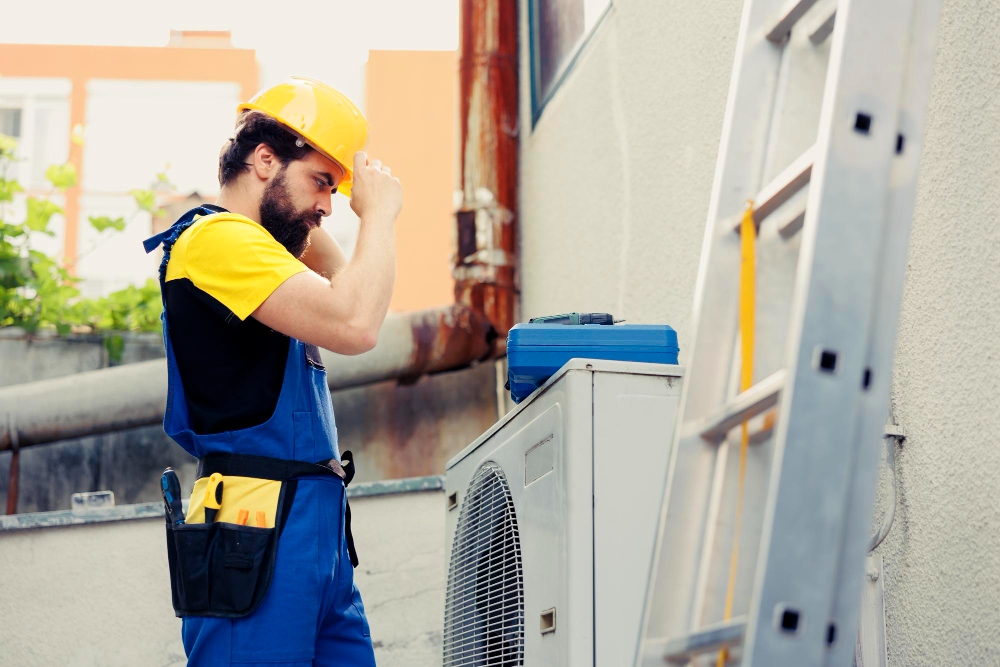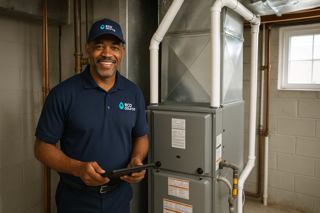
How Heat Pumps Work | Energy-Efficient Heating for MA Homes
How Heat Pumps Work: The Clean Energy Solution for Home Comfort
Imagine this: It’s the middle of January. You wake up to frost-lined windows and the soft hum of your HVAC system—not a loud rumble or dry blast, but a gentle warmth that fills every room. You stretch, make your way to the kitchen, and glance at your energy bill email notification. Surprisingly low. That’s the power of a heat pump.
For many homeowners in Massachusetts, heating used to mean compromise: between comfort and cost, efficiency and effectiveness. But that’s changing. Clean energy technology like heat pumps is reshaping how luxury homeowners think about indoor climate control.
Heat pumps are revolutionizing how homeowners heat and cool their homes by offering a clean, energy-efficient alternative to traditional HVAC systems. Unlike furnaces or boilers that burn fuel to generate heat, heat pumps use electricity to move heat from one place to another—either from the outdoors into your home during winter, or from inside to outside during summer. This heat transfer process makes them incredibly efficient and eco-friendly.
According to the U.S. Department of Energy, heat pumps can reduce electricity usage for heating by up to 50% when compared to traditional electric resistance heating methods. This results in lower energy bills and a smaller carbon footprint. Plus, modern heat pumps are designed to work in cold climates, making them a viable solution for homes in Massachusetts and throughout New England.
There are several types of heat pumps:
- Air-source heat pumps: The most common type, ideal for both retrofits and new homes.
- Ductless mini-splits: Great for homes without existing ductwork.
- Geothermal (ground-source) heat pumps: Highly efficient but more costly to install.
Heat pumps are also eligible for substantial rebates through programs like Mass Save, which offers up to $16,000 for whole-home installations. These systems also qualify for federal tax credits and 0% financing options through the Mass Save HEAT Loan Program.
Key Search Terms: how do heat pumps work, energy-efficient heating systems, clean energy HVAC, heat pumps Massachusetts
References:
- https://www.energy.gov/energysaver/heat-pump-systems
- https://www.energystar.gov/products/air_source_heat_pumps
Latest News & Blog
View All
Learn the Basic Steps to Install the Heat Pump
If you are looking to upgrade to a more effective, all-year- round heating and cooling system for your home, knowing the Heat Pump Installation Timeline can help you plan better.

Ductless Mini-Splits | Energy-Saving Comfort for MA Homes
Mini-splits offer zoned comfort, quiet operation, and energy savings—perfect for renovations and additions. Explore benefits and rebate options.

HVAC Rebates in Massachusetts | Save Up to $16,000
Discover the rebates, tax credits, and financing options available for heat pump systems. Don’t miss out on big savings for energy-efficient upgrades.

Clean Energy HVAC Upgrades | Sustainable Home Heating
Upgrade to a clean, electric HVAC system and reduce your home’s carbon footprint. Learn about eco-friendly heat pump solutions in Massachusetts.

Cold Climate Heat Pumps | Reliable Heating for Massachusetts
Cold climate heat pumps work even in freezing temps. Learn how to heat your home efficiently and access up to $16,000 in Mass Save rebates.

Top 5 HVAC Energy Efficiency Tips for Massachusetts Homes
Maximize HVAC performance with five proven energy-saving tips, including heat pumps, smart thermostats, and duct upgrades. Save energy and money.





.webp)